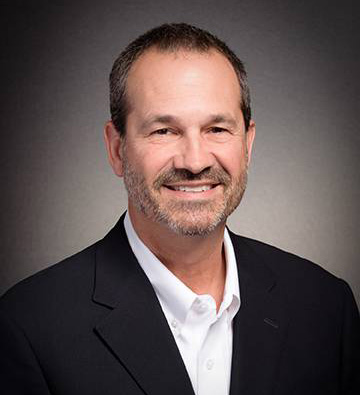Q&A Dean Monske the President and CEO of the Regional Growth Partnership
This article originally appeared in the Fall 2021 edition of Development Incentives Quarterly.
 In this edition of Development Incentives Quarterly, we welcome Dean Monske, President and CEO of the Regional Growth Partnership (RGP), an award-winning private economic development organization serving the Toledo region and 17 counties of Northwest Ohio. He is a Toledo/Northwest Ohio native who has been an economic developer for 27 years and has led the RGP for over 10 years. The RGP has won a number of significant projects in recent years, including Peleton’s first U.S. factory. Dean graciously agreed to spend some time with us this quarter.
In this edition of Development Incentives Quarterly, we welcome Dean Monske, President and CEO of the Regional Growth Partnership (RGP), an award-winning private economic development organization serving the Toledo region and 17 counties of Northwest Ohio. He is a Toledo/Northwest Ohio native who has been an economic developer for 27 years and has led the RGP for over 10 years. The RGP has won a number of significant projects in recent years, including Peleton’s first U.S. factory. Dean graciously agreed to spend some time with us this quarter.
Let’s get right to it. How did your team help to win the Peleton deal?
The RGP team helped win the Peloton deal in several ways. First, the RGP team supported the Wood County Economic Development Commission and its director, Wade Gottschalk, in acquiring several certifications and one authentication for the site. For example, the site was a certified CSX Select Site by McCullum Sweeny, and ODOD Jobs Ready Site, and most recently a JobsOhio Authenticated Site by InSite Consulting. The RGP assisted Wood County to gather data and maintain the current status of these certifications. Secondly, the RGP has been actively marketing the site to companies, real estate professionals, and site selection consultants for the past ten years. The RGP has conducted marketing campaigns around the site including collateral materials, digital materials, emails, personal meetings, conference attendance, and even flying over consultants in a helicopter during our annual Farm Tour. The RGP was instrumental in bringing NSG to the Eastwood Commerce Park site which really raised the site’s awareness, since that project was led by a national site selection firm. Thirdly, the RGP has built, maintained, and improved many relationships needed to win the Peloton deal. I already mentioned the increased interaction and coordination with the local economic development official, Wade Gottschalk. The RGP also gained a clear understanding of the property owner’s (Dominion Energy), goals for the site and worked hand-in-hand with Dominion Energy to market the site to their targeted user. The RGP, also through its normal business development outreach, maintains relationships with many national site selection firms including CBRE, the consultant for the Peloton Project. Finally, and most importantly, the RGP built and maintained a 15-year relationship with the project executive because of his past experience at a Northwest Ohio manufacturing company. All of this work occurs before there is even a Peloton project.
Once the project is searching the RGP also performed several critical roles through our project management team. First, the RGP team was responsive and available. For example, the RGP team regularly spoke with the Peloton team after 5:00 p.m. and on the weekends, and when CBRE asked for information the RGP usually sent it to them the same day. Secondly, the RGP team conducted all the research and provided the data to CBRE and Peloton proving the company could be successful in northwest Ohio. For instance, the RGP team provided the Peloton team a detailed listing of over 1,200 potential suppliers within 90 miles of the site, which went a long way to educate the site selection team which was based in Los Angeles. The RGP also provided detailed and in-depth reporting about workforce availability, utilities, and our business environment including taxes. Finally, I would say the RGP team listened to the Peloton team and worked to make sure we understood their goals, understood their concerns, understood their questions, and truly worked as their partner to see if Northwest Ohio would be a good fit for their facility.
Can you tell us a little about the projected impact of the Peleton deal on northwest Ohio?
First, the economic impact is huge, roughly 2,200 jobs at very good wages makes a difference in people’s lives and helps build wealth for individuals, communities, and we believe the company. The win is also a significant marketing win for northwest Ohio. When brand name companies like Peloton come to your area other companies and consultants notice and are now adding northwest Ohio as a possible location for their investment. For instance, shortly after the Peloton announcement the RGP team attended a Site Selectors Guild Event and every member of the Guild wanted to learn more about the Peloton decision.
Ohio is not a right-to-work state, and private sector unionization rates are higher in Northern Ohio than other parts of Ohio. How do you address some companies’ concerns about potentially having a unionized workforce?
I would say we address the concerns about labor unions head-on. The RGP is not anti-union or pro-union and we share with consultants and companies the wide breadth of experience and situations that exist in our region regarding labor. More importantly, we introduce prospective companies to existing companies who are both organized and not, and let them hear directly from their peers. The RGP finds almost every time that the person from outside northwest Ohio has a perception about unions in Ohio that is not accurate, so we take the time to listen to their concerns and educate them about what actually occurs in our region. For instance, there are many non-union manufacturers whose maintenance and facility work is performed by organized skilled trades unions because those individuals are the best at doing that type of work in our region. It doesn’t cost more, and in fact, it usually costs less but the work is performed safely and on time.
You have been an economic developer for a long time. How has economic development changed for the better over the course of your career, and how has it changed for the worse?
I would say the problems, issues, and concerns we face have become more complicated, complex, and expensive. One of the most significant changes for the better is the acceptance of regional economic development efforts. Communities of all sizes realized it is far more practical and productive to collaborate with other economic development practitioners and stakeholders within their region. These combined efforts have resulted in more opportunities for business investment and job creation, and less parochial competition.

